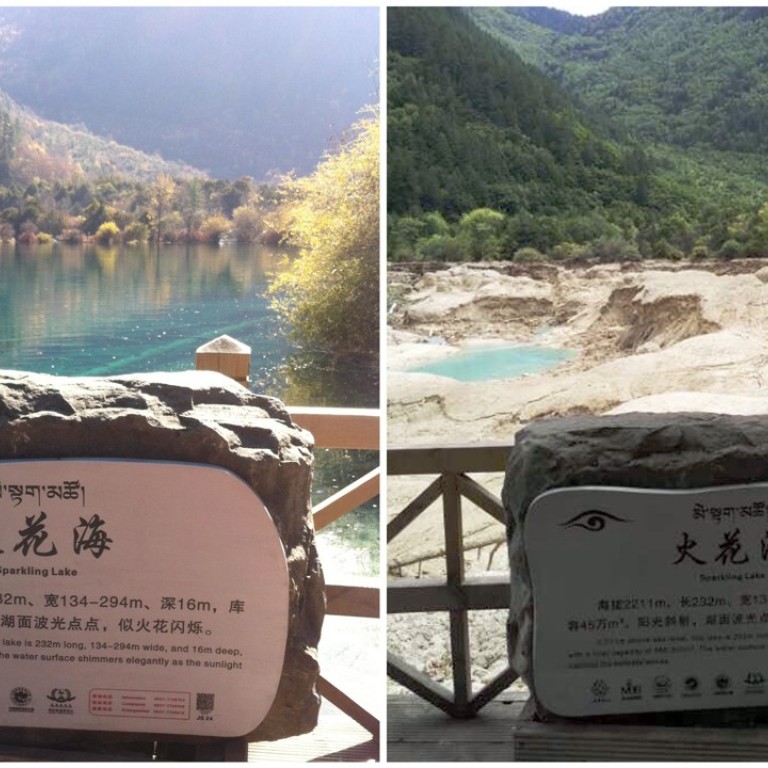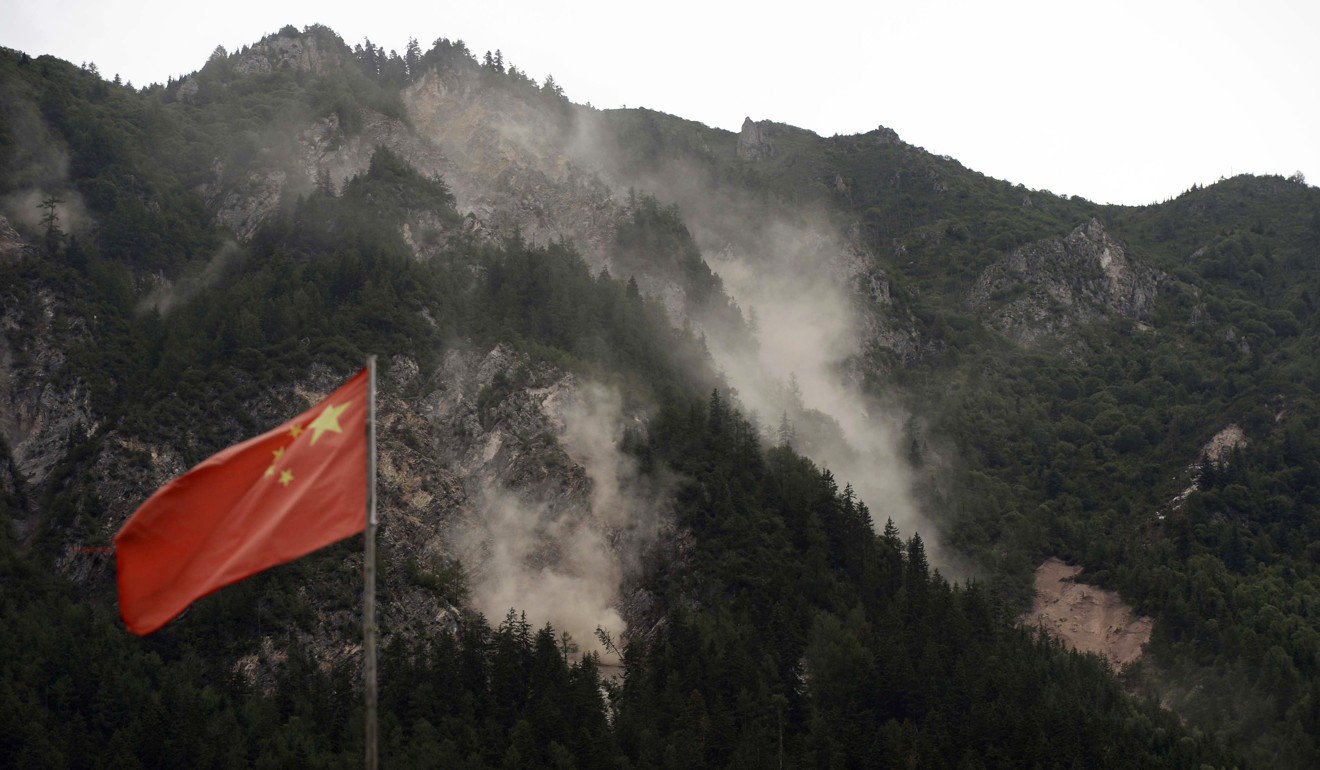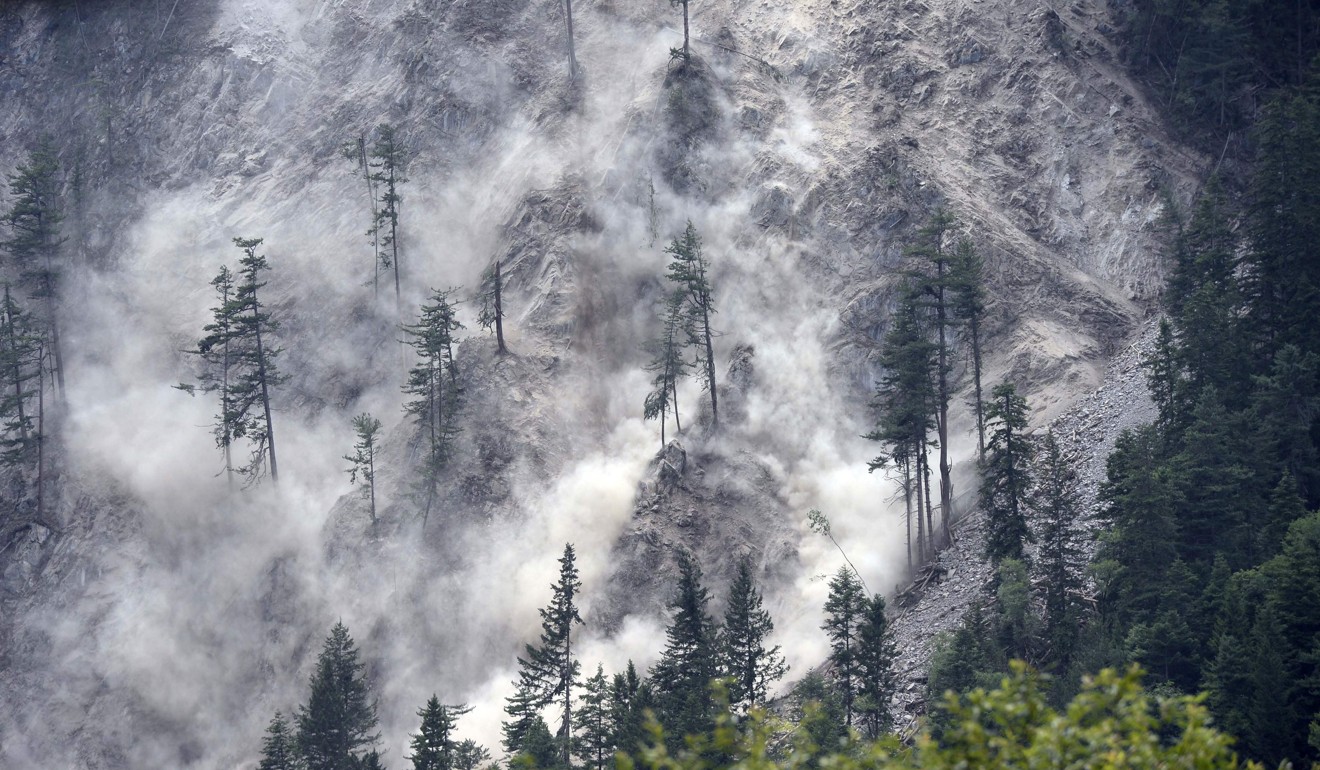
Jiuzhaigou’s tourism industry ponders its future after quake
While Sichuan’s renowned World Heritage national park will eventually recover, many local businesses may not be able to afford the wait
The domestic tourism boom has been a godsend for the remote villages of Jiuzhaigou county, but now many local businesses are facing a heartbreaking decision – stay or go.
Tuesday’s earthquake claimed at least 24 lives, injured 493 people and caused widespread damage at Jiuzhaigou National Park, one of the country’s most popular tourist attractions, and its surrounds.
It should be the start of peak season at the park – in the week before the quake, it had some 40,000 visitors per day – but instead, many operators are wondering whether to cut their losses and leave, or wait it out for facilities to be rebuilt and start again.

The Unesco World Heritage Site is famous for its otherworldly beauty – waterfalls and iridescent lakes that shimmer against a backdrop of deciduous forests and snow-capped mountains.
Since the magnitude 7 earthquake, photos and videos of the destruction it caused at popular attractions in the park have been widely circulated online.
In places, the landscape has been dramatically altered. Sparkling Lake, one of the park’s most popular locations for taking selfies and holiday snaps, is now significantly smaller.
“The earthquake opened a wide, deep rift at the bottom of the lake and the water has been draining away,” said Chen Degang, a search and rescue team member.
About a dozen police and soldiers were guarding the park’s main entrance yesterday, and only rescue teams – which continue to arrive – were allowed in.
For business owners living in surrounding towns and villages who have staked their futures on the popularity of the park, everything is now up in the air.
The service industry accounts for about two-thirds of the economy in Jiuzhaigou, according to the county’s economic yearbook. Last year, more than 7.2 million people visited the county – with 5 million of them going to the park – generating over 9 billion yuan (HK$10.55 billion) in revenue.
At a grocery shop in the town of Zhangzha, near the epicentre of the quake, the Tibetan woman behind the counter, Liu, is ready to pull down the shutters.
Liu said she did not expect the tourists to return for months, or even years. She moved from her home county of Jinchuan, some 600km away, when the tourist industry started developing in the valley in the early 2000s.
Zhangzha, usually packed with tourists, is now a ghost town, and Liu said she had little hope of making any money for the rest of the year. She has already paid some 70,000 yuan in annual rent for her shop.
On the night of the quake, her shop was inundated by panic-stricken tourists who had fled their hotels and guest houses and needed supplies. A few hours later, she had sold half her stock.
“One tourist who was sheltering in my store was so scared that she vowed never to return to the valley,” Liu said.
Fruit seller Yang Qingxiu and her husband were just as worried about their business “No tourists will come here while the park’s being restored,” she said.
For years, they have sold fresh tropical fruit trucked in from Chengdu, the provincial capital, for visitors unaccustomed to the dry mountain weather. Tens of thousands of tourists were evacuated after the quake, and Yang and her husband have been forced to sell their fruit at below cost to reduce their losses.
Many guest house and hotel operators said that, with their businesses on hold, they would struggle to make loan repayments and cover the cost of repairs – and they were counting on the government to provide financial aid.
But newcomer Lin Li, who moved to the town in June to run the Jiuzhai Sea View Hotel, said she was optimistic that the tourists would come back. “For sure, tourism will slow down for a while,” Lin said. “But we should be confident that Jiuzhaigou National Park will be restored – it’s a World Heritage Site after all.”


